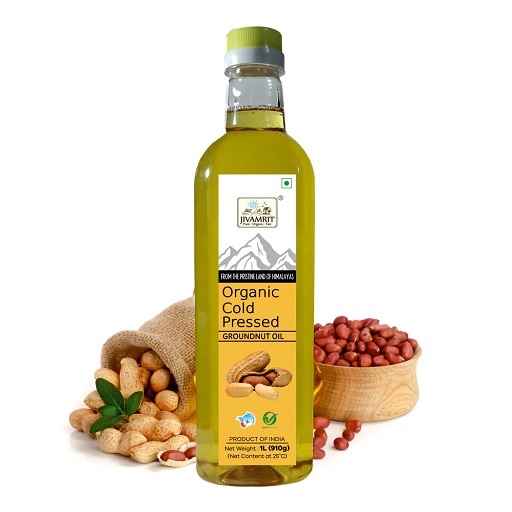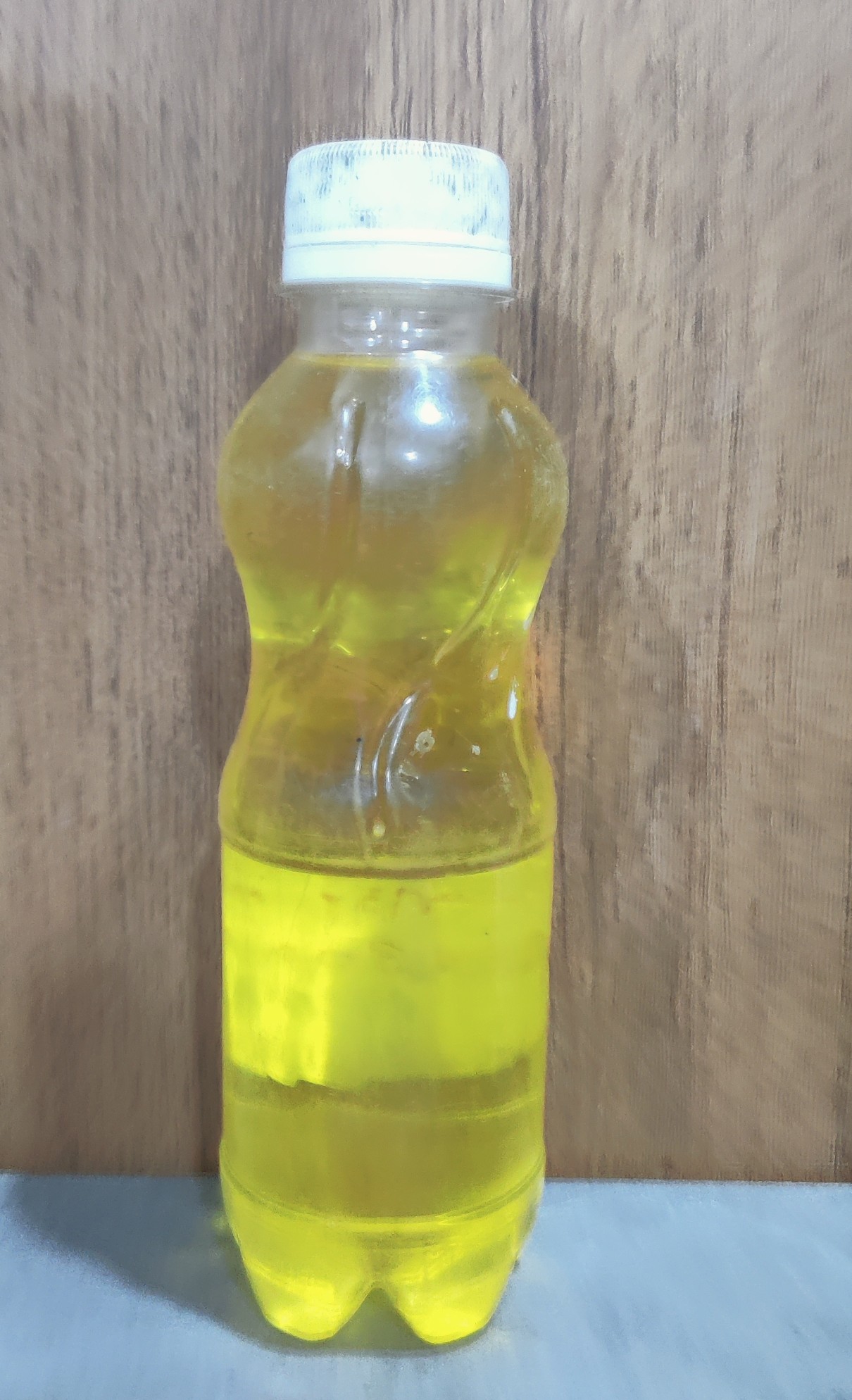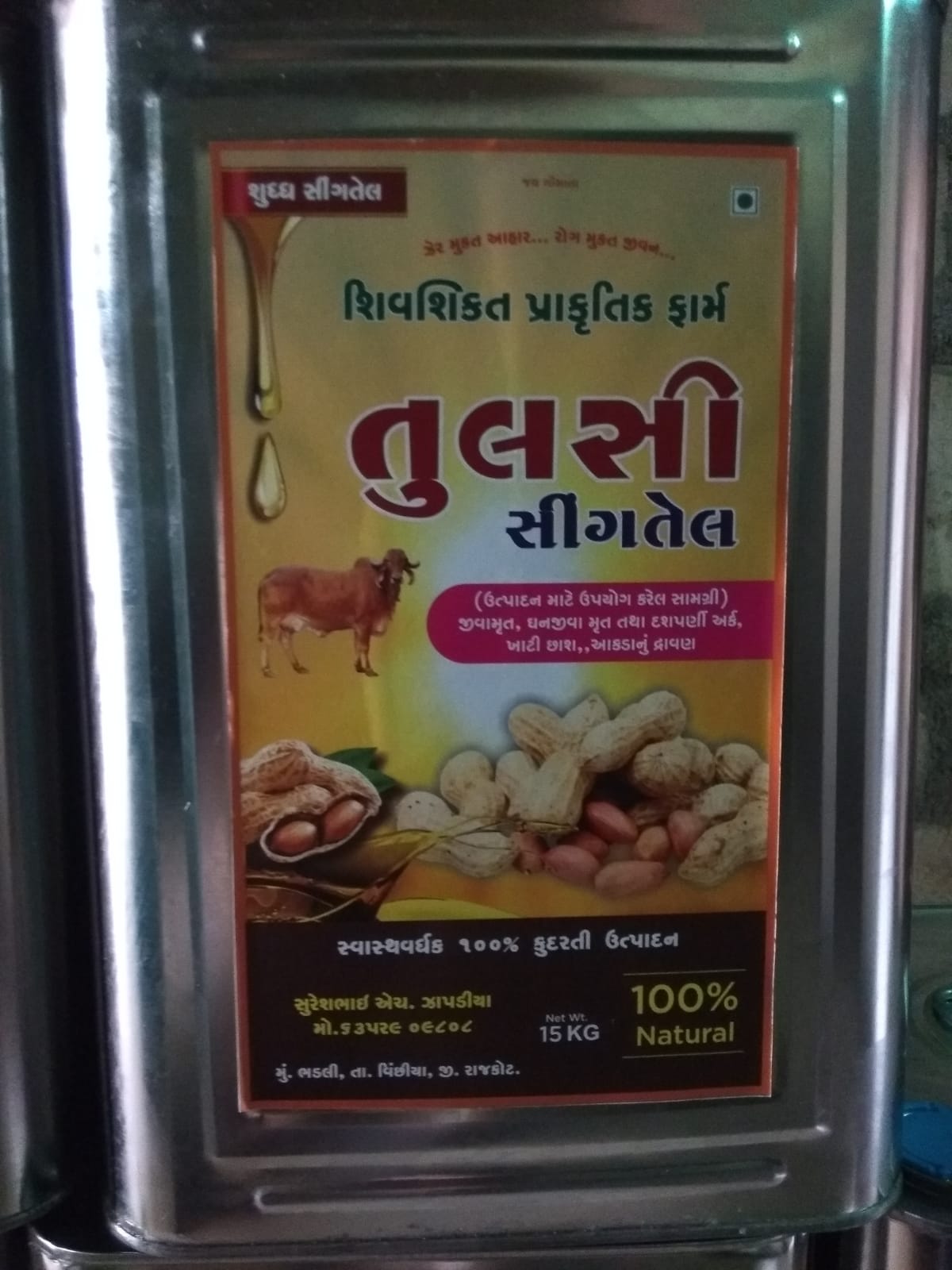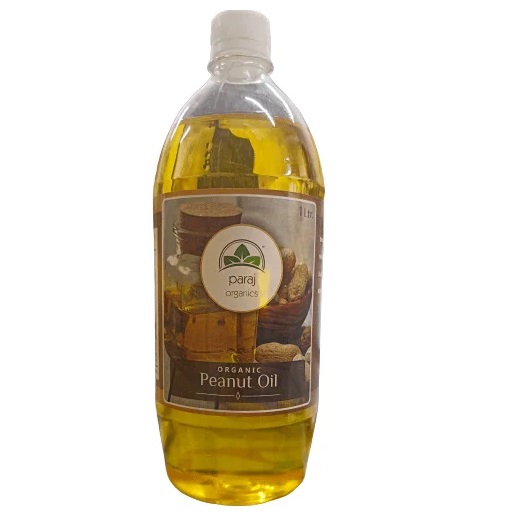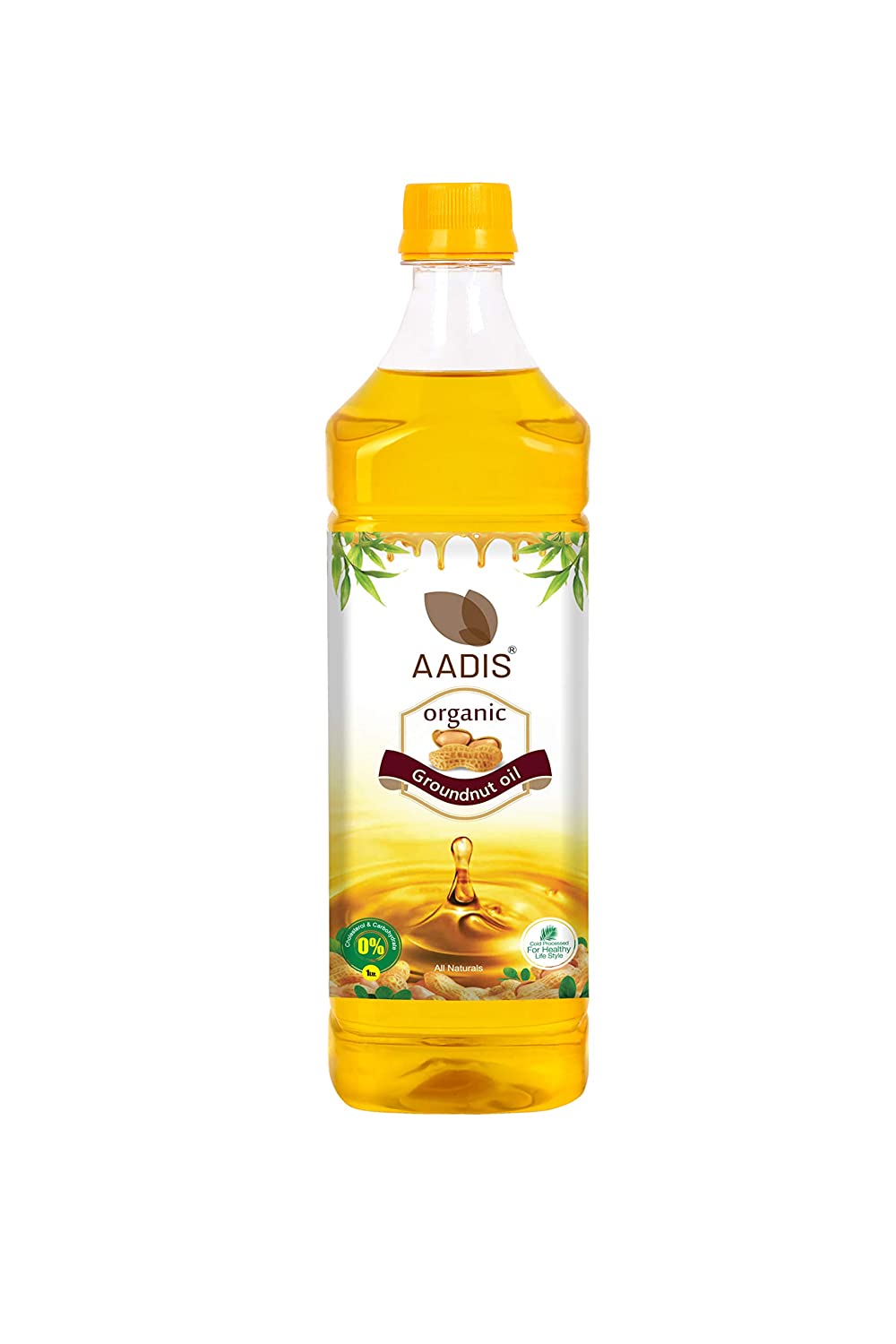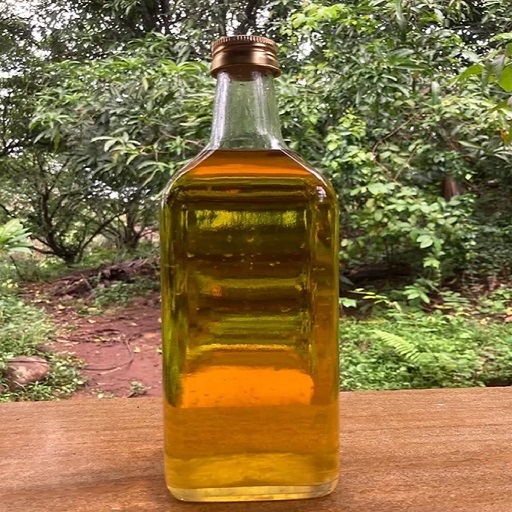

Natural Groundnut Oil Cold Pressed
- Category: Organic Ground Nut Oil
- MOQ: 1 Bottle
| Category: | Organic Cooking Oil |
|---|---|
| MOQ: | 1 Bottle |
| Packing: | 300ml |
| Supply Capacity: | bulk |
| Port of Dispatch: | any |
| Payment: | Net banking,others |
The method of pressing without heat retains the rich nutritional profile, natural vitamins, minerals and antioxidants of the original nut. This differs from heat extraction or chemical extraction (like those used for refined oils). It's the cleanest way you can extract the oil. The one step above this extraction method is a bullok driven 'ghani', which, if we find in our area, we will definitely shift to. Until then, here's our peanut oil. Like everything else we bring to you, this is what we too consume at home.
Why does the oil foam?
This had our curiousity as well. The main reason this oil foams is when we add something with water content into it. Thereafter it's simple physics of condensation, which appears as foam.
In general, other reasons also exist for foaming, like having a low smoke point or contaminants in the cookware. This isn't the case for peanut oil as it has one of the highest smoke points. And we trust we're keeping our cookware shinny.
Why is our pricing higher than others in the market?
1- There are 2 ways a farm can produce peanut oil. They can either grow their own peanuts and extract the oil, or purchase the peanuts grown by other farmers and extract the oil.
When peanuts are grown in-house, each individual working on the peanut receives a day wage for their work. Alternatively, a family participates in growing peanuts and sells their crop to another who will extract it for oil. The peanuts are sold at market rate, its income is shared by the entire family.
While it is more expensive to grow your own peanuts, we've found it's the only way we can truly ensure the soil sees good farming practices. We are also happy to pay individuals for the work.
Neither is right or wrong. They are both just different, both with advantages and disadvantages.
2. On the farm, we have closed the circle. That is to say, our own cows who feed on our own lands provide the dung which goes back into feeding the soils. This helps us minimize contaminants. For example, dung purcahsed from cow sheds comes with residual syringes of hormone shots administered to the bovine for milk production. There is also a lot of plastic trash in the dung. We've closed this loop by nurturing our own animals, growing our own native rice whose straw they eat, and grazing them on our own lands. This example represents all of our agriculutral practices. The only thing we cannot control is the elemental sharing of air and water.
related products
ABOUT US
Quick Links
Resources
Connect with Us
Copyright © 2025 KEMFREE FARMERS PVT LTD. All rights reserved.


